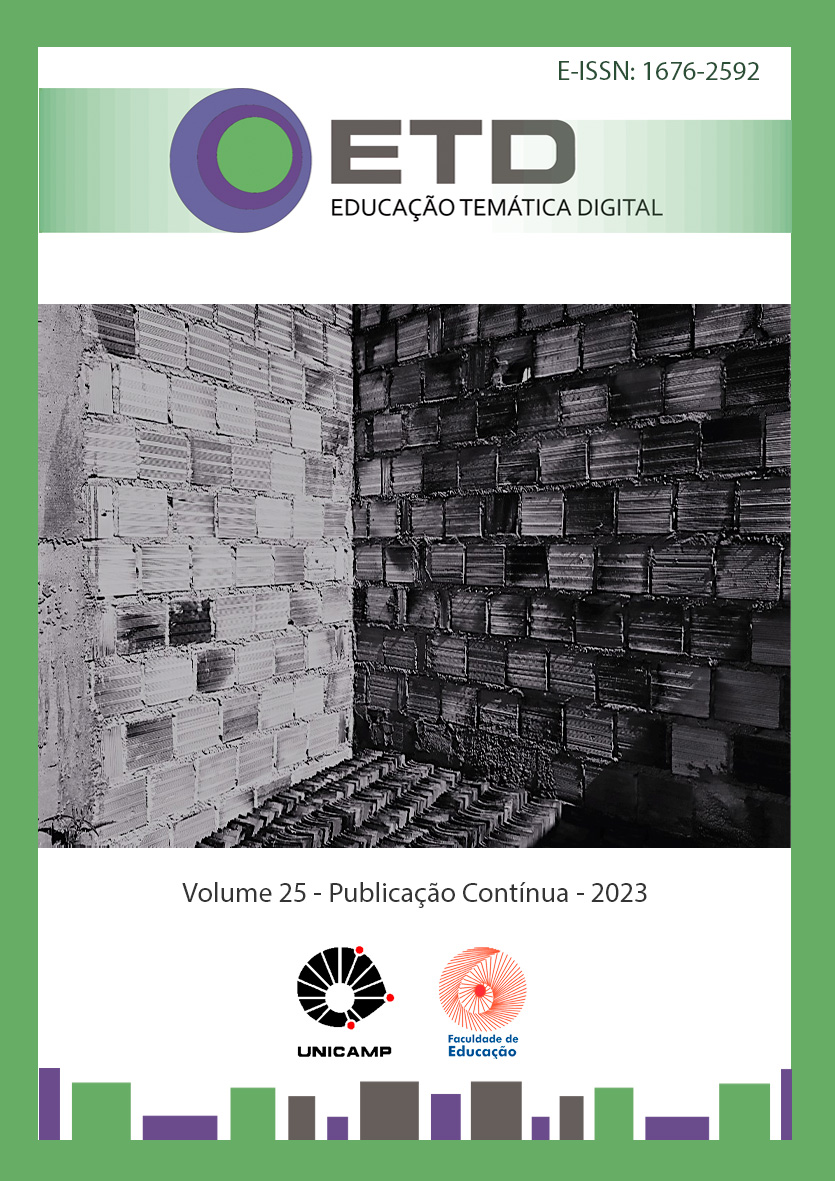Abstract
To analyze the positions of teachers who work in basic education regarding basic psychological needs and understand what definitions they attribute to the sense of autonomy, competence and belonging and their relationship with well-being in teaching. Methodology: qualitative and quantitative research, through the application of a questionnaire, sent by email, via Google Forms. The original questionnaire was subdivided into three axes, the first and part of the third being adopted for discussion and analysis. The first axis comprises issues relevant to the socio-demographic and labor context. The third axis, composed of five discursive questions, three of them related to basic psychological needs and, therefore, used in the present discussion. The collected data were analyzed through the bias of content analysis. Eighty-three teachers from the municipal public network of a city located in the northwest of the state of Rio Grande do Sul participated in the study, which is equivalent to 44.6% of the total number of municipal teachers working in the classroom in this municipality. Results indicate satisfactory levels of well-being, especially basic psychological needs (belonging, competence and autonomy). It is concluded that the emphasis on basic psychological needs made it possible to understand that teacher well-being needs to be a purpose of the entire school community, articulating the different segments in the organization of educational institutions and systems, in order to provide the experience of a sense of autonomy , competence and belonging in the context of teaching.
References
AZANHA, José Mário Pires. A Formação do Professor e Outros Escritos. São Paulo: Editora Senac, 2006.
BARDIN, Laurence. Análise de Conteúdo. Tradução Luís Antero Reto, Augusto Pinheiro. São Paulo: Ed. 70, 2016.
CARVALHO, José Sérgio. Reflexões sobre Educação, Formação e Esfera Pública. Porto Alegre: Penso, 2013.
CORTELLA, Mário Sérgio. Educação, Escola e Docência. Novos tempos, novas atitudes. São Paulo: Cortez Editora, 2014.
DAVOGLIO, Tarcia Rita; TIMM, Jordana Wruck; SANTOS, Bettina Steren dos; CONZATTI, Fernanda de Brito Kulmann. Necessidades psicológicas básicas: definições operacionais na docência universitária. ETD: EDUCAÇÃO TEMÁTICA DIGITAL, v. 19, p. 510-531, 2017.
DECI, Edward L.; RYAN, Richard M. The “What” and “Why” of goal pursuits: human needs and the self-determination of behavior. Psychological Inquiry, 2000, v. 11, n. 04, p. 227– 268. Disponível em: http://goo.gl/cvu9Ek. Acesso em: 04 abr. 2016.
FREIRE, Paulo. Pedagogia da Indignação. Cartas pedagógicas e outros escritos. São Paulo: Editora UNESP, 2000.
FREIRE, Paulo. Pedagogia da Autonomia. Rio de Janeiro: Paz e Terra, 1996.
FREIRE, Paulo. À Sombra desta Mangueira. 5ª ed. São Paulo: Editora Olho d’Água, 1994.
FREIRE, Paulo. Professora Sim, Tia Não. Cartas a quem ousa ensinar. São Paulo: Editora Olho d’Água, 1993.
GIL, Antonio Carlos. Como Elaborar Projetos de Pesquisa. São Paulo: Atlas, 2007.
GUTERRES, Rodrigo de Azambuja. Educação Física nas Séries Iniciais: Uma Proposta de Bem-Estar para Unidocentes do Município de Alegrete-RS. 2011. 89 f. Pontifícia Universidade Católica do Rio Grande do Sul, Porto Alegre/RS. Dissertação de Mestrado. PUCRS, 2011.
JESUS, Saul Neves de. Bem-estar dos professores: estratégias para realização e desenvolvimento profissional. Porto: Porto Editora, 1998.
MARCHESI, A. O bem-estar dos professores: competências, emoções e valores. Porto Alegre: Artmed, 2008.
MENDES, Maria Luiza Maciel. Condições de Trabalho e Saúde Docente. 2006. Disponível em: www.fae.ufmg.br/estrado/cd_viseminario/trabalhos/eixo_tematico_2/condicoes_trab_saude_docente. Acesso em: 25 de julho de 2020.
PINHEIRO, Leandro Brum. O bem-estar na escola salesiana: evidências da realidade. 2011. 141 f. Pontifícia Universidade Católica do Rio Grande do Sul, Porto Alegre/RS. Dissertação de Mestrado. PUCRS, 2011.
RAUSCH, Rita Buzzi. DUBIELLA, Eliani. Fatores que promoveram mal ou bem-estar ao longo da profissão docente na opinião de professores em fase final de carreira. REV. DIÁLOGO EDUC., Curitiba, v. 13, n. 40, p. 1041-1061, set./dez. 2013.
REBOLO, Flavinês. BUENO, Belmira Oliveira. O Bem-estar Docente: limites e possibilidades para a felicidade do professor no trabalho. Acta Scientiarum. Education Maringá, v. 36, n. 2, p. 323-331, July-Dec., 2014.
RYAN, Richard. M.; DECI, Edward L. Overview of self-determination theory:an organismic dialectical perspective. In: DECI, Edward L.; RYAN, Richard. M. (Eds.). Handbook of self-determination research. Rochester, NY: University of Rochester Press. p. 03–33.2002. Disponível em: http://goo.gl/7OgP4A. Acesso em: 02 ago. 2021.

This work is licensed under a Creative Commons Attribution-NonCommercial-NoDerivatives 4.0 International License.
Copyright (c) 2023 ETD - Educação Temática Digital


